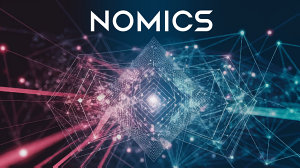Nomics: The Recursive Framework of Universal Knowledge Integration
About this ebook
Rooted in its etymology—“Nomics” (from Greek "nomos," meaning law, system, or order)—this paradigm establishes a comprehensive framework where scientific, linguistic, atomic, and economic principles converge into a singular, structured, and recursively governed universal knowledge economy.
At its core, Nomics synthesizes and extends:
Lanomics → The Structuring of Linguistic Truth and Semantic Coherence
Atonomics → Atomic and Quantum Foundations of Physical Reality
Axionomics → The Recursive Framework of Axiomatic Truth and Logical Formalism
By integrating these previously established systems, Nomics creates a harmonized, self-regulating model that unifies disciplines through:
AI-driven knowledge architectures – Automating recursive learning and interdisciplinary synthesis
Quantum coherence models – Mapping atomic structures to information networks
Blockchain-backed verification – Ensuring immutable standardization and decentralized governance
As a recursive framework, Nomics functions as a self-evolving knowledge structure, adapting to scientific discovery, technological progress, and epistemological refinement. This revolutionary approach ensures that knowledge is not fragmented but systematically organized, verifiable, and optimized, setting the foundation for a universal, integrated model of intelligence, innovation, and economic balance.
About the author
Ronald Legarski is a visionary systems theorist, interdisciplinary researcher, and architect of recursive knowledge frameworks dedicated to unifying scientific, linguistic, and economic principles into a singular, standardized system. As the Founder of SolveForce and Co-Founder of Adaptive Energy Systems, Legarski has developed scalable, recursive models that bridge structured reasoning, quantum intelligence, and universal knowledge harmonization.
As the creator of Nomics, Legarski introduces a revolutionary recursive framework that integrates AI-driven knowledge structures, quantum coherence modeling, and blockchain-backed standardization into a harmonized, self-regulating universal economy of knowledge and energy. His research explores axiomatic formalism, atomic equilibrium, and the fusion of linguistic and scientific truth into a single, recursively governed system.
With expertise spanning quantum mechanics, computational linguistics, artificial intelligence, formal logic, and decentralized governance, Legarski's work redefines interdisciplinary knowledge structuring and recursive epistemological integration. His leadership in Adaptive Energy Systems applies Nomics principles to quantum energy modeling, self-sustaining AI frameworks, and economic standardization, while SolveForce continues to drive advancements in telecommunications, AI-driven information structuring, and decentralized scientific verification.
Through his research, writing, and technological innovations, Ronald Legarski redefines the future of knowledge organization, introducing a recursive, scalable framework where scientific, linguistic, and economic principles coalesce into an integrated model for universal truth and progress. His vision for Nomics represents the next stage in knowledge standardization, recursive learning, and interdisciplinary scientific advancement, ensuring a coherent, self-regulating future of intelligence and structured reality.







